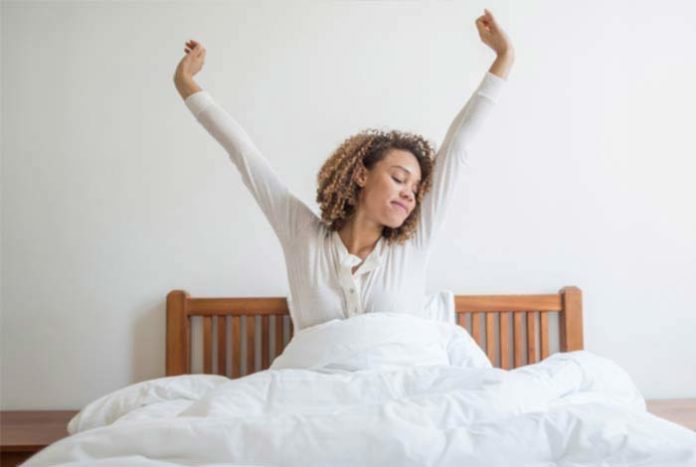
Maybe you stayed up late last night watching your favorite show! Or, you turned and tossed in your bed at night thinking about an important meeting the next morning. Now, your alarm is piercing your ears and you just want to hide under the covers. Haven’t we all been in this situation? The morning after a bad night of sleep is not very easy. Fortunately, there are ways that can help you out in this situation. Know some expert health tips what you should follow.
Do Not Hit Snooze
You may want to sleep a bit more but that’s not the best thing you can do to yourself. You do not have to bring much change in your routine after a night of bad sleep. Make sure that you get up at the same time each morning even if it’s a holiday the next day.
When you wake up at the same time every morning, it helps maintain your circadian rhythm, which affects your metabolism, immunity, energy and creativity. Sleeping late night disturbs your biological clock. And, if you think sleeping for a few extra minutes will make you feel better then you are simply wrong.
Step Out
Have your breakfast outside. Going for a walk is a great option. But, do not put your sunglasses on. It is about exposing yourself to natural light. This will suppress the production of melatonin – a hormone responsible for making you feel sleepy. This makes you more attentive. Sunlight improves your mood too. The feel-good hormone serotonin gets released, which makes you less agitated.
Don’t Have Too Much of Caffeine
You can drink coffee in the morning. But, cut it out by lunch. Coffee only has short-term effects. You can have a little bit of it to keep going, but avoid consuming it throughout the day.
If you have had a cup in the afternoon, you may find it difficult to catch your Zs in the night. A study suggested that having caffeine even six hours before going to bed can keep a person awake.
Take a Power Nap for 25 Minutes
You may find yourself falling flat on the couch in the afternoon to catch up on some sleep. But, if you enter a state of deep sleep, you may feel more dazed and groggy. Also, a long sleep will alter the homeostasis of sleeping and waking up. You need to be awake for some time before going to bed. You start from scratch when you wake up after a long episode of sleep. This means, you will not be tired, which may lead to another night of bad sleep.
You can take some rest in the midday at around 1 PM. This sleep will just rejuvenated you and will also not affect your nighttime sleep.
Beat the Dip in Energy at 3 PM
When you feel your energy going down, some amount of exercise can do magic. A study showed that walking on stairs for 10 minutes increases the energy levels more than caffeine. So, walk down to the ground and then, up again.
Don’t Change Your Time of Going to Bed
You may want to sleep by 8 PM but resist the urge and stay up. Stick to your schedule as your body is used to going to sleep at a specific time. If you go early, you would remain lying there with a feeling of tiredness.
Create the environment to sleep before you go to bed. For example, switch off the electronic devices, wear comfortable clothing and glasses that block light and do not take heavy meals or drink alcohol.
Return to Your Normal Schedule
Do this as quickly as possible. This will prevent damage from lazy sleep at night. However, if this has become a chronic problem, you will have to change your routine. Cut out on caffeine and speak to your doctor if he can prescribe you some medication.










